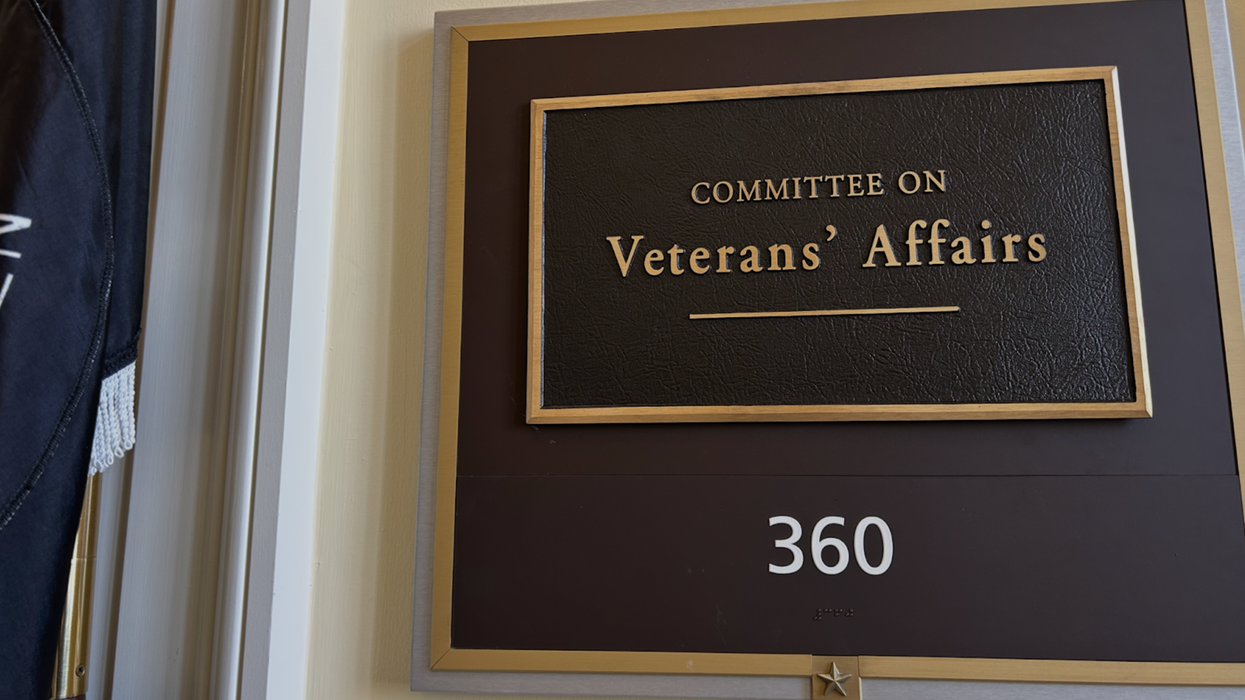WASHINGTON – At a time when the Department of Veterans Affairs has been processing record levels of disability claims, Democrats warned last week that the agency’s productivity will not last under the deep cuts ordered by President Donald Trump.
The 2022 PACT Act broadened eligibility for VA disability claims. Staff increases under the Biden administration enabled the VA to keep up with the growing number of claims.
However, VA Secretary Doug Collins said in March the department plans to deeply slash its employees to return to 2019 staffing levels. Based on the goals of the Trump administration to shrink the federal government, Collins said the VA plans to lay off around 72,000 people over the next year, a 15% decrease in their current staff levels.
“How can claims be processed and care be delivered if VA isn't adequately staffed or equipped?” Rep. Mark Takano, D-CA, said on April 10 at a House Democratic Steering and Policy Committee hearing.
In February, the VA dismissed around 2,400 employees.
After serving their country, and getting injured or sick, veterans often rely on the VA for disability benefits.
The PACT Act allowed for more veterans to file for disability veteran compensation. Over 1.7 million disability claims, linked directly to the PACT Act, were filed in the first two years as part of 4.4 million claims overall in the same time frame.
The processing rate of disability claims has continued to increase. The VA processed 8.5% more disability claims this year—compared to the same time frame in 2024—said Kenneth Smith, an assistant deputy under secretary for operations management at the Department of Veterans Affairs, on April 9 at a House Disability Assistance and Memorial Affairs subcommittee hearing.
The department expects to surpass last fiscal year’s recordof 2.5 million processed claims.
"While significant progress has been made, we recognize the need for continuous improvement and adapting to evolve [to the] needs of those we serve," Smith said.
Smith noted the current disability claim backlog, which was around 230,000 as of April 5, was slowly shrinking. He said the department receives 10,000 daily claims but processes around 11,000 daily.
Subcommittee chairman Rep. Morgan Luttrell, R-TX, said inefficient bureaucratic systems could unnecessarily delay or dismantle the application process of a veteran.
“There will always be a problem set that exists,” Luttrell said. “The VA is such a wonderful working machine. I mean, I say that wholeheartedly, it has its problems. We should forever be changing in order to keep up with the wants and needs our veterans face.”
The subcommittee hearing was held a day after Democratic members of both the House and Senate Veterans’ Affairs Committees, including Rep. Morgan McGarvey, D-KY, signed a letter denouncing an executive order from President Donald Trump that eliminates certain collective bargaining and labor rights for public servants at the VA and other agencies.
“We need them [VA staff members] to be able to do their best work without unnecessary limits or undermining their importance to the system,” McGarvey said. “Unfortunately, this administration continues to spread the false message that the VA employees are not dedicated to their mission.”
The House Democratic Steering and Policy Committee hearing focused on the Trump administration’s elimination of labor rights for VA workers and veterans who work for the federal government.
Senior Advisor George Chewning at the Union Veterans Council, which represents veterans, said cutting 2,400 from the VA staff had already slowed services but it has been difficult to get a complete picture of the effects.
“It’s hard to imagine a world in which the VA can serve those additional hundreds of thousands of veterans that are now receiving benefits and care while removing the staffing that was brought in to support that,” said Chewning, who was a White House fellow under Trump’s first administration and Biden’s administration.
Ismael M. Belkoura is a graduate journalism student with the Medill News Service at Northwestern University. He specializes in health, business and legal reporting.




















